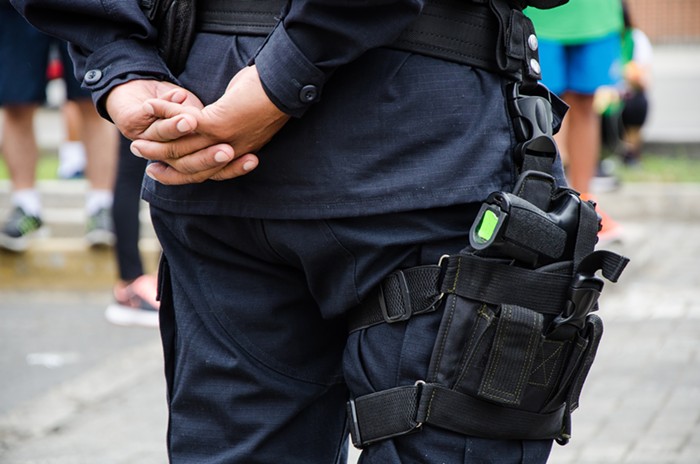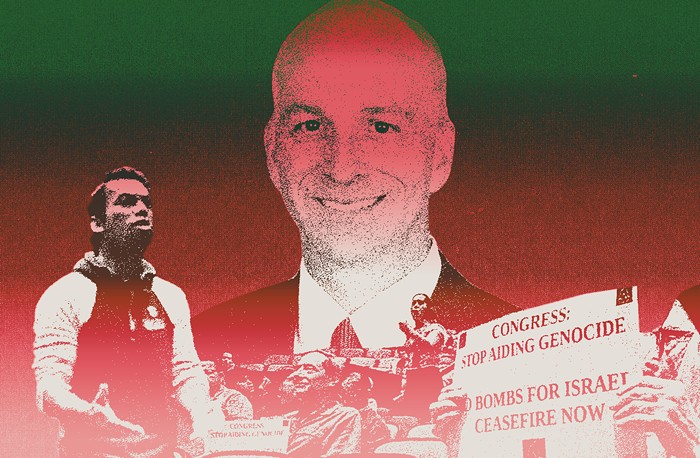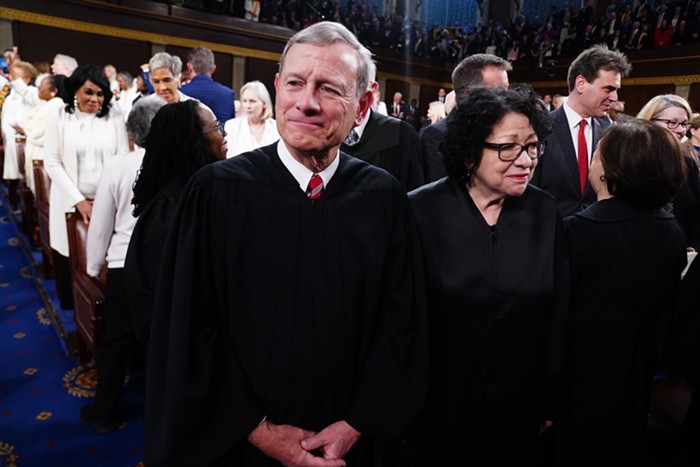On February 2, 2024, the City Attorney’s Office (CAO) circulated a memo and subsequent press release which accused me of bias and gross incompetence. The CAO has taken the unprecedented step of not allowing any of their cases to be heard in my Court by issuing an Affidavit of Prejudice (AOP) every time a matter comes before me. They have further announced their plans to continue issuing affidavits through the rest of my term.
The blanket-affidavit policy is the most extreme version of such a policy that I’m aware of anywhere in Washington. Past AOP policies against specific judges have tended to be subject-matter-specific, impacting perhaps one calendar at a time (e.g. domestic violence or driving under the influence cases). Put another way, the CAO intends to effectively nullify a judge elected by the people of the City of Seattle through backdoor legal maneuverings, making sure that no defendant ever gets the chance to have a case heard in my courtroom. I speak only in my personal capacity as an elected Judge, and not on behalf of the Seattle Municipal Court.
This behavior has a significantly negative impact on the Court and our democratic process. If prosecutors can effectively nullify a sitting judge this way, we do not have real elections. To my knowledge, this is the first time in Washington history that a prosecutor has made it so a particular judge will never hear any criminal cases.
Falsities in the Memo
- The CAO’s accusations of bias and incompetence in the Memo completely lack merit.
Throughout my entire time of service to the City of Seattle, I upheld my deep commitment to be impartial and fair toward everyone who comes before my Court. I am committed to upholding the rule of law, the Constitution and the court rules. I hold both the defense and prosecution to the same exacting standards of professionalism and integrity.
My record speaks for itself. The CAO’s statements and memo claim to discuss actual cases and events, but these cases do not exist, and the events did not occur. Put more bluntly, the memo is simply false, and I will address every accusation in detail.
- The CAO stated that their concerns were raised with me multiple times. That assertion is false.
The CAO never communicated with me about any concerns about bias or competence, nor about the substance of the memo or press release, in any form or at any time except for once. In February, former CAO employee Natalie Walton-Anderson told me about the contents of the memo, after it had been written.
The CAO never raised any communication, complaint, or concerns about bias to me, to the Presiding Judge or, so far as I know after searching, to any staff of the Seattle Municipal Court prior to the 2/27 memo. In fact, to my knowledge, the CAO has not provided specific concerns or evidence that they had raised such concerns to anyone since that time.
The CAO has failed to provide any case records to authenticate any accusation of bias or error to me or to the Court at any time. Nor, to my knowledge, has any member of the press been able to obtain any such records, despite repeated requests.
The memo contains allegations of impropriety in specific cases – four in total. After exhaustive review, I cannot locate any evidence that these cases exist, and am confident that they don’t exist.
Direct Response to Accusations in the CAO Memo
“For the past several months, we have internally discussed the criminal division’s serious concerns with the conduct and rulings of Judge Pooja Vaddadi. Unfortunately, as outlined below, those concerns have only continued to mount in the past several months. As a result, I have made the difficult decision that the office will submit affidavits of prejudice for Judge Vaddadi on all criminal cases moving forward.”
I don’t think it’s likely that any internal discussion about my “conduct and rulings” that would lead to the blanket AOP policy occurred before February, because my practice and the outcomes from my court are not misaligned with those of my peers on the bench. In fact, it was my assumption that the CAO had come to trust my impartiality over the preceding several months, based on feedback from prosecutors who appeared before me. At any rate, such discussions by the City Criminal Division, if they exist, would have been discoverable by a public records request and none have been disclosed in response to such requests.
“All parties have the legal right to file an affidavit of prejudice to disqualify a judge on criminal cases if the party believes that it cannot receive a fair hearing or trial. Having a fair and impartial judge is one of the cornerstones of our judicial system. It has come to a point where Judge Vaddadi’s continued rulings prevent the city from receiving fair hearings and trials, and this action is therefore necessary to protect those rights and the rights of those affected by our inability to ensure fair and equitable hearings. The reasons for this decision, along with some examples, are set forth below.”
The assertions in the Memo would not support a claim of bias.
Court rules (CrRLJ 8.9 (b)) provide for disqualification of a judge if a party “files an affidavit alleging that the party cannot have a fair and impartial trial by reason of the interest or prejudice of the judge,” within limits set by the statute.
The use of the disqualification rule does not require that the party specify a reason why they ascribe bias to the judge when they file an AOP, and attorneys typically don’t. The memo and press release are even stranger because they make claims about errors of law, none of which are evidence of bias. The remedy for errors of law is not the AOP process, but the appellate process. The AOP process has never been intended for blanket nullification, but rather for specific concerns about bias on one subject or with a specific witness or defendant.
“First, Judge Vaddadi has routinely overruled prior findings of probable cause by her fellow judges, and repeatedly failed to find probable cause in situations where clearly probable cause exists. In one instance, she failed to find probable cause for the crime of assault when the suspect threatened a victim with a realistic (though ultimately fake) handgun, based on her belief that there was no alleged touching or contact between the parties. Her misunderstanding is in direct conflict with the legal definition of assault and long-standing case law and widely accepted jury instructions.”
This paragraph misconstrues legally significant terminology, (“overruling” rather than “reconsidering” a prior PC finding,) mischaracterizes the law on Assault, and describes a case that does not exist.
First, preliminary findings of probable cause are routinely challenged via a request for reconsideration. Both the defense and prosecution have the right to move for reconsideration, and both the defense and prosecution have used this opportunity in my Court. It is more common for the defense to avail themselves of this mechanism because probable cause is found in most cases and preliminary findings of probable cause can often occur without the defendant present. Unlike prosecutors, defense attorneys must often reserve their arguments until the defendant is present before the court.
Furthermore, I have seen several fake handgun cases, but none of them match the description in the memo. The result described does not match any case I recall or that I have been able to locate in my record, and it is improbable it would match any case record for the following reasons.
The description of the law on misdemeanor assault in the Memo was reductive and misleading, and the requirements to find probable cause for assault are more complex. I cannot reduce or paraphrase the law without risking inaccuracy. Misdemeanor assault in Washington at a minimum requires unwanted physical contact or a reasonable apprehension and fear of imminent bodily injury, and the threat must be perceived by the victim. The lack of an imminent threat of harm involving a fake weapon can arise when, hypothetically, the witness involved in a non-physical confrontation either did not observe the fake handgun or knows a fake weapon is fake and the City fails to assert the perception of imminent threat of bodily injury.
Therefore, a mere finding that a fake handgun was present in a case charged as assault would not alone be enough to find probable cause for assault. And whether a fake handgun is or is not at issue, a complete record must include all the relevant findings as to the elements of assault, namely: physical contact, imminent apprehension and fear of bodily injury, perception, etc. In other words, regardless of the presence or absence of a fake weapon in an assault case, an appropriate record should address each element of the crime, including whether there was, “alleged touching or contact between the parties,” as any first-year attorney should be aware.
At any rate, none of the accusations in this paragraph rise to a level of bias even if they were true, and the appropriate remedy for error is through appeal.
“Second, equally problematic are her rulings related to public safety in Domestic Violence and DUI cases. In many instances, Judge Vaddadi has refused to issue written No Contact Orders, even in situations with a demonstrated history of domestic violence. Another example involved her releasing an individual from jail, despite the fact that the individual had been arrested twice for DUI within a week and was in recent years convicted of DUI as well.”
This statement by the CAO is false. I issue most written no contact orders that a party requests. The only reasons I would not are where a no contact order would interfere with a pre-existing order that has been thoughtfully imposed by a higher court; or where it would not serve the interests of justice, for example, where a victim strenuously objects to the imposition of an order that would prevent them from seeing their children or maintaining their housing.
The DUI case “example” does not exist. It claims that a repeat-offender of DUI was released from jail immediately after committing two DUI’s. I cannot locate any cases matching that pattern. If any similar case exists, I suspect it would relate to any defendant who was last arrested for DUI up to two years ago, and whose case was delayed during that time, as prosecutors often hold off filing DUI cases until the statutory deadline.
Once again, none of the CAO’s accusations in this paragraph show bias even if they were true, and the appropriate remedy for error is through appeal.
“Third, Judge Vaddadi frequently makes erroneous evidentiary rulings for unjustified reasons, rather than articulating any legal analysis. She routinely raises arguments on behalf of defendants without prompting or argument from their own attorneys. The resounding input from attorneys that have appeared in her courtroom believe that her decisions demonstrate a complete lack of understanding, or perhaps even intentional disregard, of the evidence rules, even on basic issues.”
The City never appealed any of my rulings prior to issuing the Memo. Please appreciate the irony that, in one paragraph, Ms. Walton-Anderson criticizes a legal analysis, and in the next claims that I do not articulate any legal analysis. Nonetheless, I’m not aware of having made erroneous evidentiary rulings at all during my tenure, and by definition an erroneous evidentiary ruling would be unjustified. However, error does not constitute bias. The City has access to the appellate procedure to contest error in evidentiary rulings, and it has now only done so once, without success.
No attorney or leader at the CAO has ever contacted me directly or through my Presiding to discuss specific evidentiary errors or any pattern of errors prior to issuing the Memo. Nor have I received any negative feedback on this issue – or any other – from any practitioners who appear in my courtroom. To the contrary, feedback that I have received directly from attorneys, including prosecuting attorneys, has been uniformly positive.
Seattle Municipal Court is a teaching court. In other words, attorneys who are in their first few years of practice frequently appear in my court. It would be a disservice to both the City and the Defense if I did not improve their practice by pointing out obvious errors. Finally, as a Judge, the burden of public safety and constitutional safeguards falls on me. It would be a significant deviation from my ethical obligations if I were to violate a defendant’s fundamental constitutional rights or if I released a dangerous individual from jail simply because a first-year attorney failed to make an argument.
“Lastly, Judge Vaddadi does not show appropriate deference to court orders, and often in circumstances where the goal is to monitor DUI and DV offenders to ensure they participate in treatment. In one recent case, Judge Vaddadi ruled that a defendant was in substantial compliance with treatment and dismissed the case, even though it was clear that the defendant never got on the transport van to ABHS to fulfill his residential treatment requirement that was part of dispositional continuance. Not requiring offenders to follow through with their treatment obligations does not mitigate the likelihood of future criminal behavior or protect the public.”
Of all the examples in the Memo, this is the most problematic.
First, the City has used the AOP process throughout my tenure to block me from taking DV matters in which the prosecution and defense had a dispute about compliance. No such cases have come through my courtroom. I have presided only over dispositional continuance or compliance matters in which the defense and prosecution have already negotiated the issue of compliance.
Second, this example of a “recent case” is fiction. I am deeply disturbed by the recklessness of Ms. Walton-Anderson and the CAO in publishing such specific and detailed claims about a case that I am certain did not occur. I assert with confidence that I have never and would never find someone in “substantial compliance” when they’ve willfully failed to get on the bus to court ordered treatment. The CAO has failed to provide any evidence of this case simply because it does not exist.
“I have immense respect for the members of the Seattle Municipal Court bench, and as prosecutors we should all show great restraint when expressing concerns about the decisions made by our elected judges. However, judges also have a responsibility to set aside their personal feelings and follow the law, and their rulings must demonstrate equal fairness to both individuals charged with a crime and those, our victims and survivors, who are affected by it.
Earlier this afternoon, I informed Judge Vaddadi and the Presiding Judge of this decision, and I want each of you to understand the reasons for taking this unusual action. I will provide you with more information about how the court will address this matter, and what actions we will need to take on our individual cases, tomorrow. Please contact me or your supervisors if you have any questions.”
The Memo was crafted a few weeks after a February 2024 ruling in which I disqualified an individual prosecuting attorney from trial to avert a potential ethics and evidentiary issue - the only occasion on which I have taken that step. Almost immediately after circulating the Memo and announcing the AOP policy, the City filed a writ appealing the disqualification ruling. The appeal was not successful, and the Superior Court upheld my decision to disqualify. This is the only appeal that the City has ever filed against any of my rulings. At this time, I believe that the sole source of discontent from the CAO is that I enforced an ethical and evidentiary rule against one of its attorneys.
If the CAO had legitimate concerns about me as a judge, there are several steps it could have taken. The CAO could have communicated concerns with me or to our Presiding Judge, but it did not. The CAO could have appealed any of the rulings that it believed were wrong or reflected bias, but it did not. The CAO could have engaged with the Commission on Judicial Conduct, but as far as I know, it did not.
Instead, the CAO circulated a scathing memorandum, riddled with misrepresentations or outright fabrications, embarked on an Affidavit of Prejudice campaign of unprecedented scope and severity, and then issued a press release calculated to damage my reputation. I do not believe this behavior reflects respect for this Court; for the judges, magistrates and staff who are burdened and inconvenienced; for the City of Seattle that must now fund pro-tem coverage; or for the victims who may be impacted when court calendars are needlessly overburdened, and cases dismissed for speedy trial violations.
I remain now, as when I campaigned, committed to fairness and impartiality. My record reflects nothing less. No amount of inconvenience or venom directed at me will interfere with my commitment to judicial independence and to enforcing the highest standards of ethical behavior in my courtroom. I ask the CAO to retract this memo, to critically examine how the memo came to be published, and to consider whether the policy furthers justice in Seattle.



















